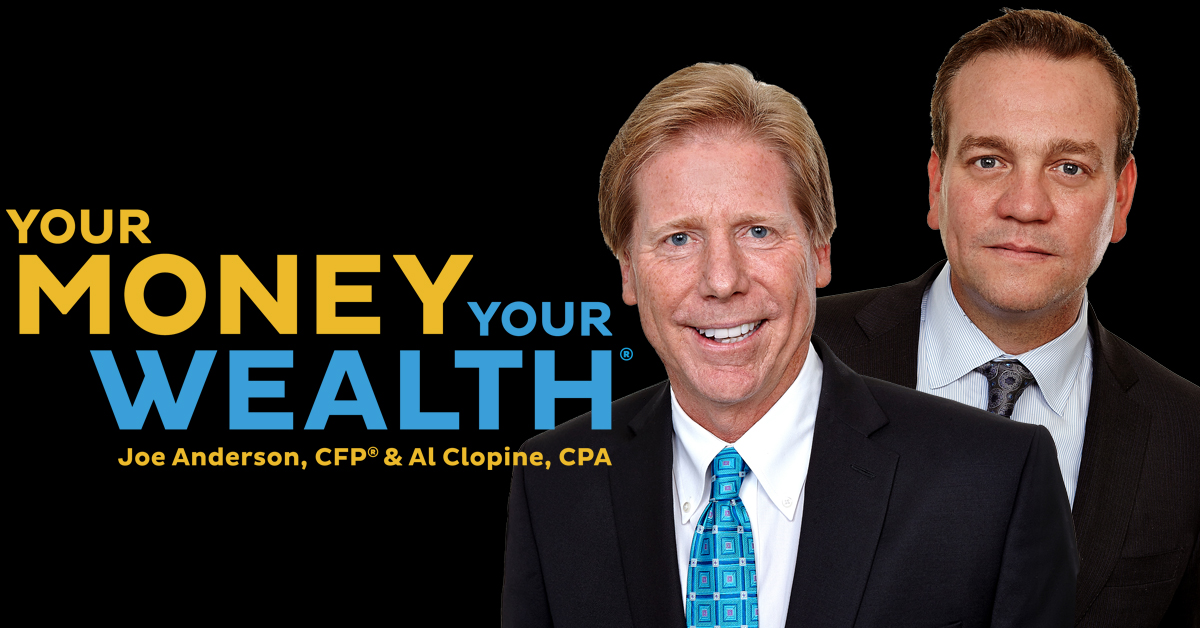Recent Podcasts
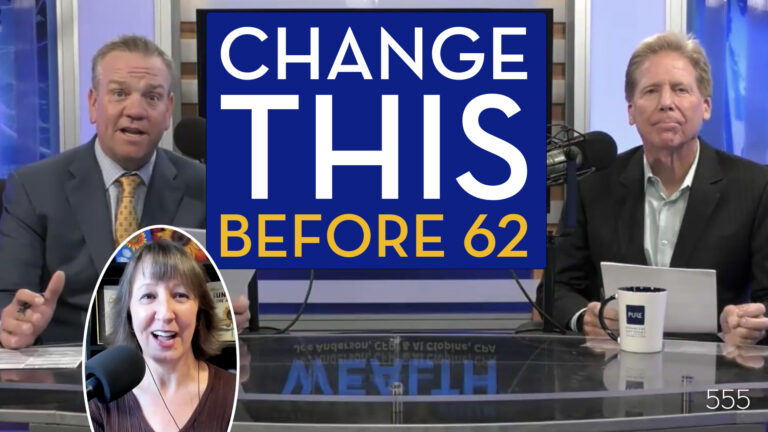
Joe Anderson, CFP® and Big Al Clopine, CPA spitball withdrawal strategies, Roth conversion timing, and saving priorities for every stage of life, today on Your Money, Your Wealth® podcast number 555. Christine just retired at 59 and wants the smartest way to draw income before Social Security, without letting taxes...
More Podcasts

Should the new temporary senior tax deduction change your Roth conversion strategy? Joe and Big Al spitball for Chris in Maple Grove, Minnesota, who wonders whether to keep converting to Roth now that the $6,000 Senior Bonus deduction phases out with higher income. Teri from Salt Lake City’s broker has amassed $60,000 of losses in Teri’s $1.1 million account due to tax-loss harvesting. When is enough… enough? Windy Chicago in Chino Hills, California, wonders what to do about their cost basis vanishing after transferring mutual funds to Vanguard, and Larry and Sally from Michigan are planning for retirement while facing significant health challenges. Can they afford to bridge the healthcare gap and still retire safely?

When should you convert to Roth, while you’re still earning, or after retirement? First, James from Texas wonders if it’s worth maxing out his high-fee 457 plan, or if he’s better off investing in a low-cost brokerage account. Full-time travelers “Lois and Clark” want to know how much they should keep converting to Roth now that they’re on Medicare. Ray Charles in Chicago is burned out on corporate life and plans to quit at 55. Is that the perfect time for him to start Roth conversions? And finally, Gun and Rose from Louisiana ask if borrowing again from their 401(k) is a smart move.
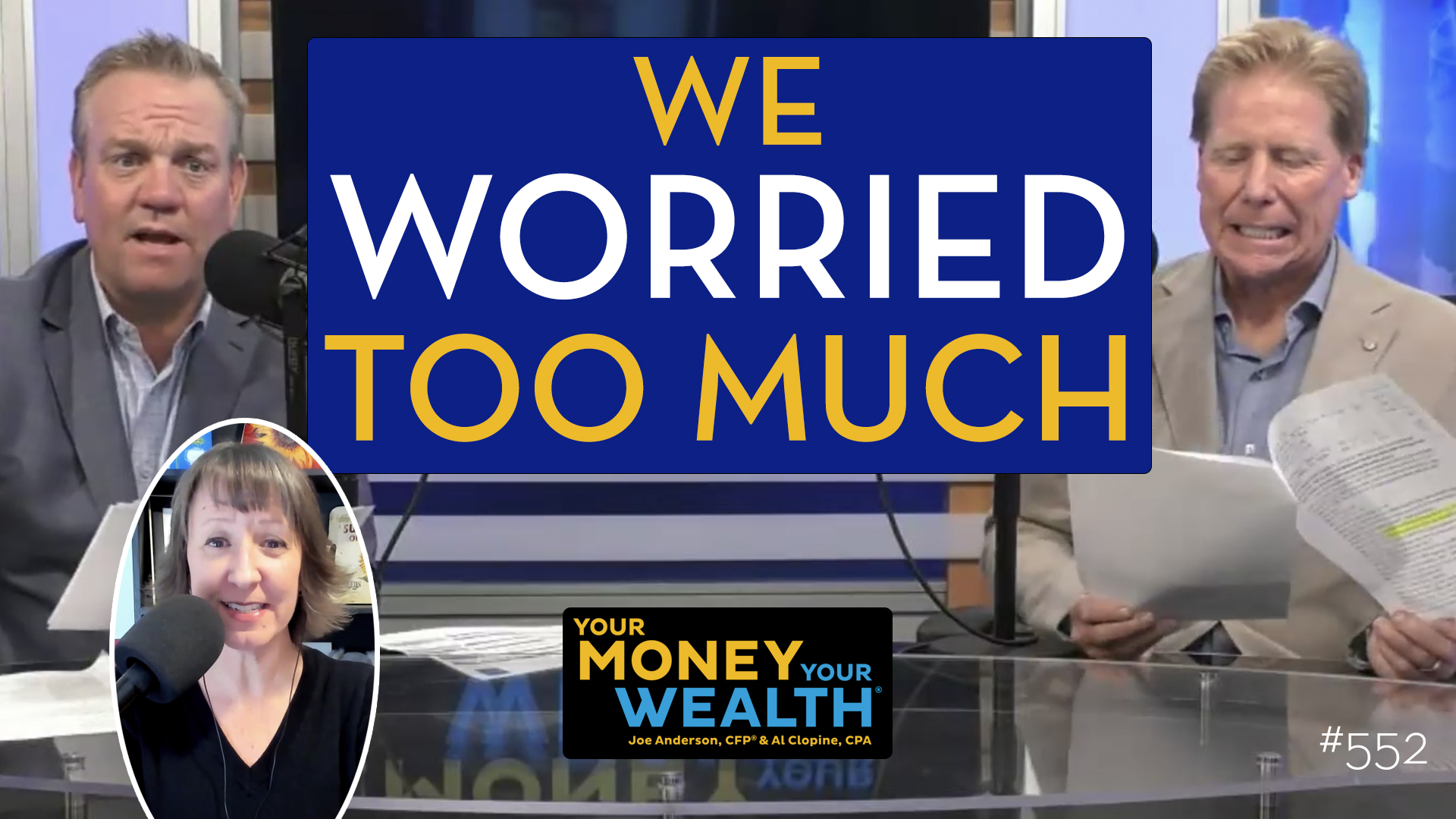
Joe and Big Al tackle the fears that mess with even the best-laid financial plans, today on Your Money, Your Wealth® podcast 552. Big Wallet Barbie and Ken from the Midwest have saved millions, but Barbie’s still worried about retiring early, buying a new house, and converting to Roth. Is she second-guessing her plans? The fellas spitball for Dan from Florida, who’s flying high in the 35% tax bracket and trying to decide between Roth 401(k) contributions and future Roth conversions. They also float a surprising idea – one that’s rare on YMYW – for a listener from Chicago who is FIRE’d Up about Roth vs. pre-tax and making a tax-smart wealth transfer. We’ll wrap up with a couple of your comments.
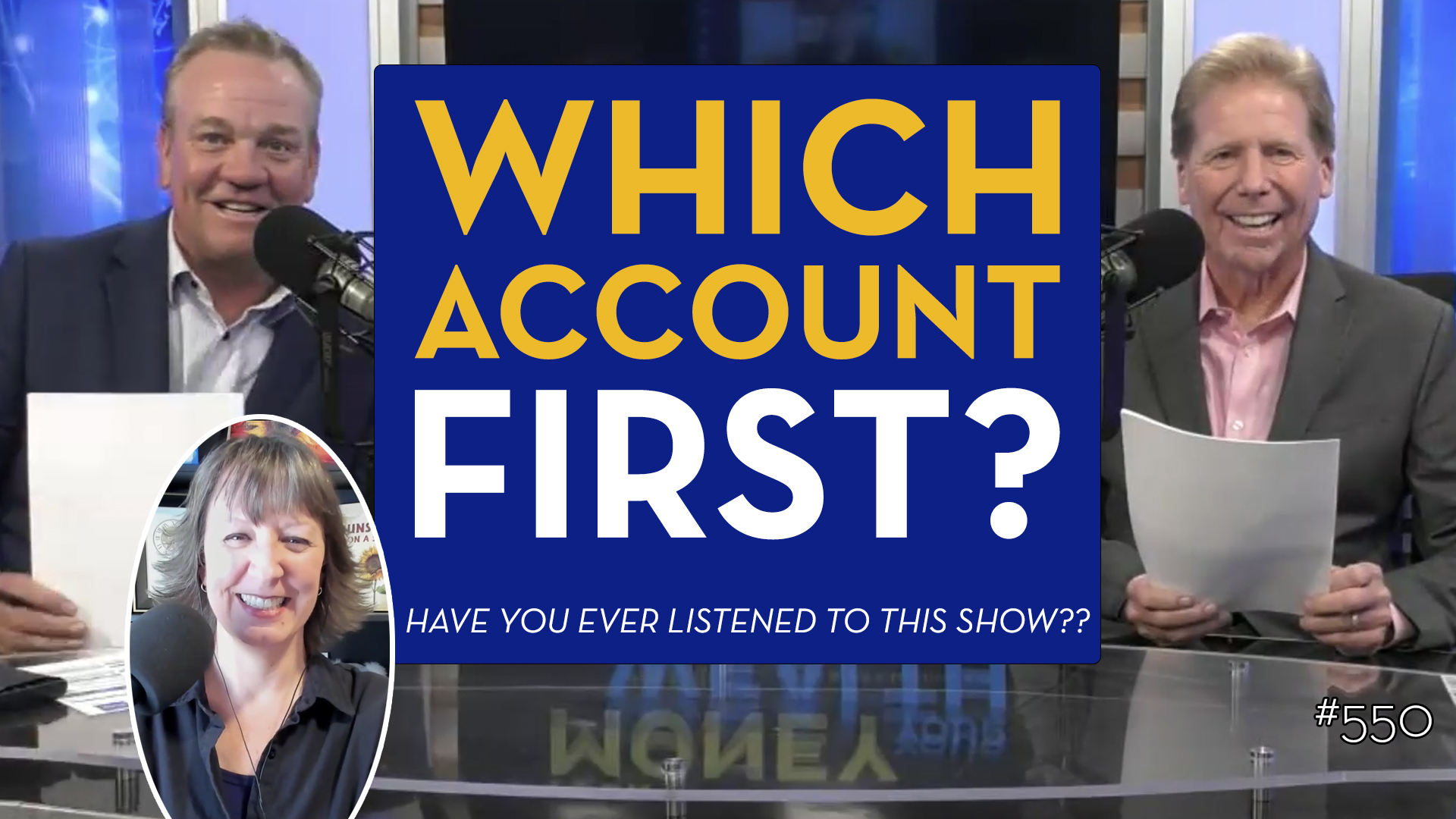
We’re playing “which comes first” in this episode: “Retired G-Man and Nurse Ratched” from Pennsylvania have saved $2 million. Should they withdraw money first from their IRA or their taxable accounts in retirement? “Mike and Carol” in Florida want to know when and how much to convert to Roth, but they’re also sitting on a mountain of company stock. Should they deal with that first? Mackey in Florida is 55 and wonders if he can retire now with $2.6 million and some lingering debt – but there’s an important first he’s missing too! Plus, Mike in Utah asks Joe and Big Al to spitball on a plan for his 90-year-old mom’s $1.9 million annuity, and Doc McMuffin in Minnesota asks for the fellas’ take on her plan to gift appreciated assets to her parents.
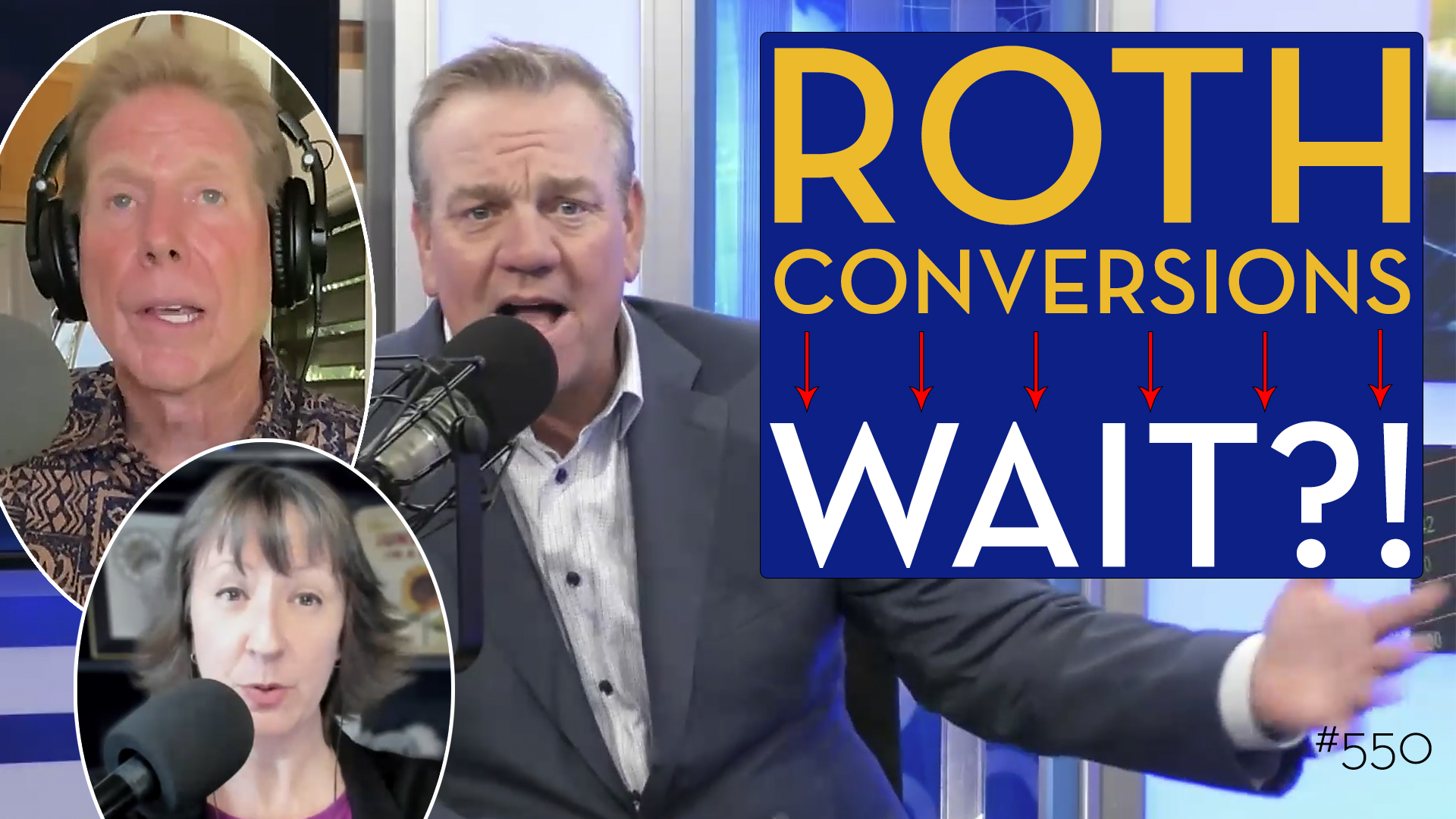
Joe and Big Al spitball on how to avoid screwing up the timing of your Roth conversions: Barrie from New York is 62 and single, and she’s been diligently converting pre-tax money each year for lifetime tax-free Roth growth. Should she continue after she retires next year? “Jerry and Elaine” want to retire in the next six years and still leave the kids an inheritance. When should they start Roth conversions? Alex in Pennsylvania is a 31-year-old software engineer. Should he convert his IRA to Roth all at once? Plus, how can he transition into a career as a financial planner? A clarification from one of our YouTube viewers on the age plus 20 rule of thumb for retirement contributions is very un-clarified for Joe, and the fellas let Lisa in San Diego know whether she can use her rental real estate income to fund a Roth 401(k).
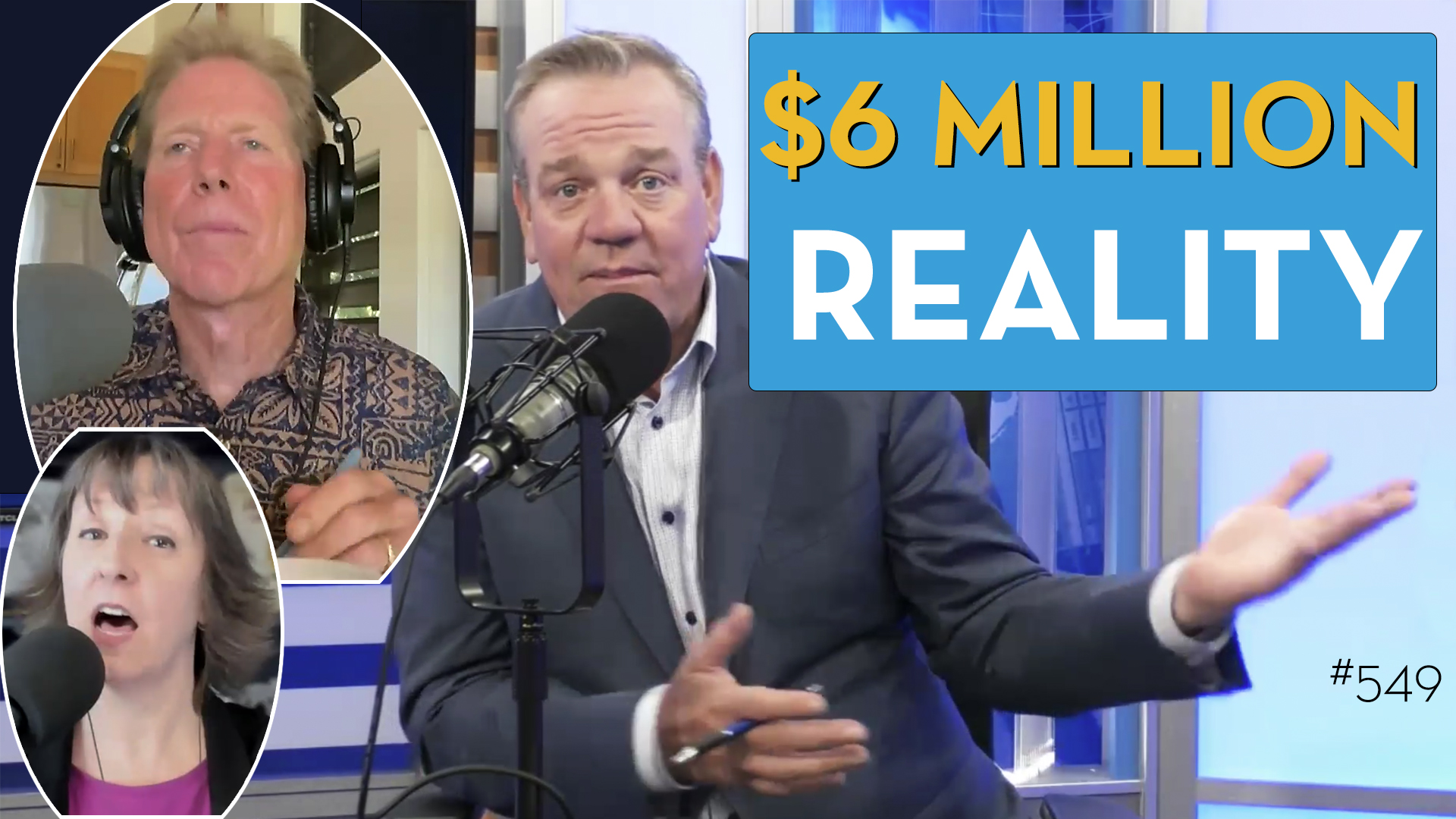
A comment on one of our YouTube videos sparks a dialogue between Joe and Big Al on the 4% rule vs the “guardrails” withdrawal strategy. Joe at the Beach is managing his ~$6M portfolio on his own, but wants the fellas’ take on his upper limit for yearly spending, so he can keep drinking his old-fashioneds. Can Joe Ko in Virginia afford to bridge the gap between retiring at 67 and taking Social Security at 70? Plus, “Harold and Maude” have nearly $7M saved. Should they accelerate Roth conversions into high-tax brackets before moving from low-tax Colorado to high-tax California? And how much more than their current annual spend can they afford for family vacations and travel?
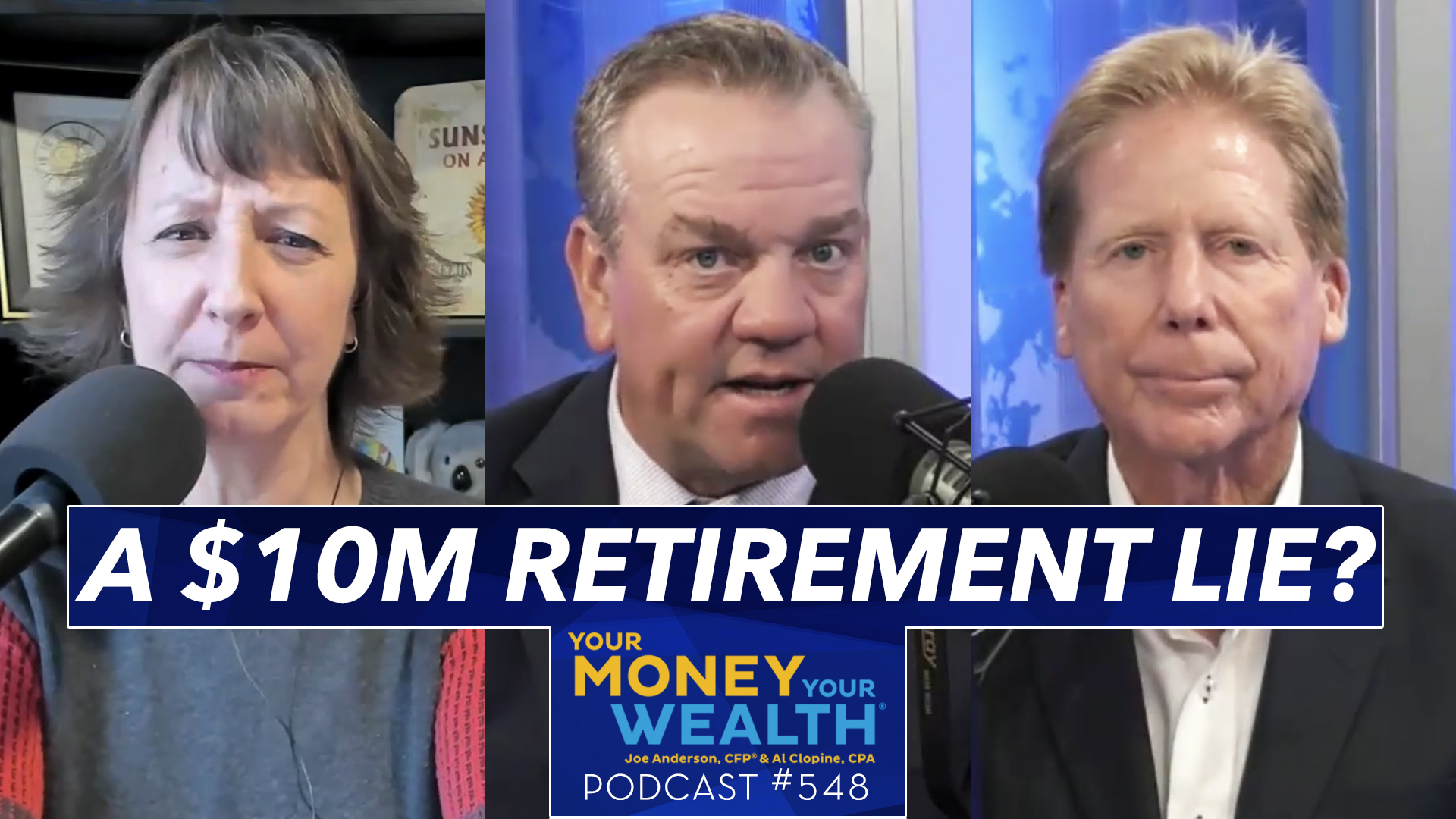
Wendy and Joe in Colorado ran the numbers, and their financial planning software says they’ll have over $10 million when they pass. Wendy’s wondering if they should continue converting to Roth while working, despite their high tax bracket. But has the software lulled them into a false sense of security? That’s today on Your Money, Your Wealth® podcast number 548. Plus, which is smarter for “Kurt and Courtney” in New York: aggressively paying down their mortgage, or putting their extra money to work in the market before Kurt retires early in 20 years? Finally, when does it stop making sense for high-earners “Tim and Faith” in Boston to contribute to their Roth? The fellas duke it out on this one (and we figure out, based on our earliest musical interests, which era we’re each children of.)

A YMYW listener from Missouri and his wife are retired at 69 and 67, with less than $2 million dollars. Should they continue converting retirement savings to Roth for the tax-free growth? What should they do about long term care insurance? More importantly, is our listener’s name (Cousy) pronounced “Cuzzy” or “Koozy”? Speaking of Roth conversions, must “Peggy Hill” wait five years to withdraw her conversion money, or only its earnings? Plus, is Skipper’s retirement payout plan the killer deal he thinks it is? How can Jeff in Dallas pay less capital gains tax on his $3M of single stocks, million dollar 401(k), and potential eBay income? Is selling on eBay still a thing? Does Dolly in Tennessee need to empty her inherited IRA within the next 10 years due to the SECURE Act? And finally, HSA vs. HRA: how should Larry in Rhode Island navigate switching from his current employer’s health savings account to his future employer’s health reimbursement arrangement?
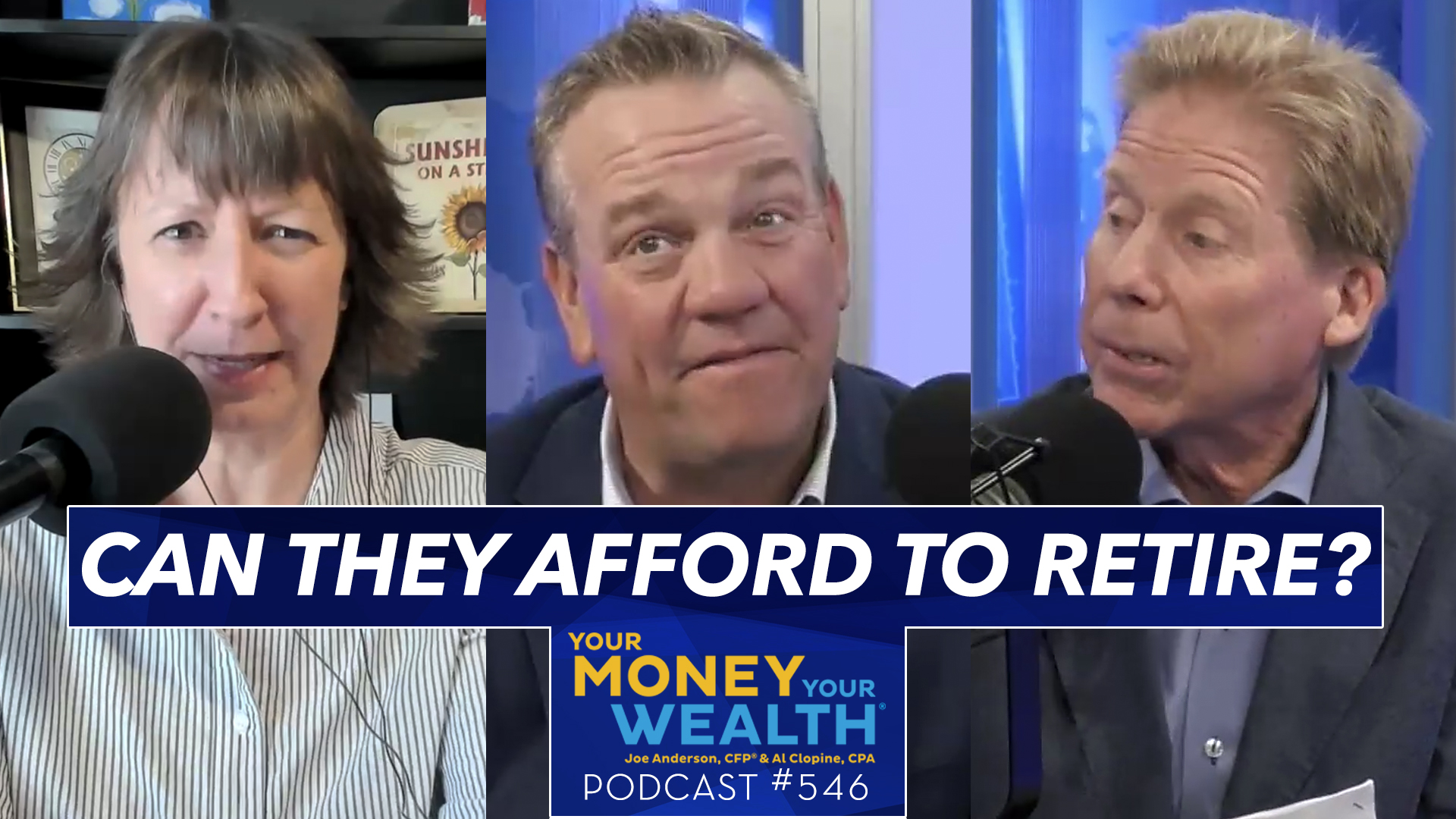
We heard your feedback, and today, Joe Anderson, CFP® and Big Al Clopine, CPA are spitballing retirement for the not-so-fat wallets: Joe and Masako in Washington state and Reid in Indiana have less than a million saved. Can they still accomplish their retirement goals in their 60s? Mr. Buckeye in Ohio and Old Macdonald in Maine have less than a million saved, and Curt in Pennsylvania has less than $1.5 million saved. Can they retire early – in their 40s and 50s?

One Big Beautiful Bill is now law. How does it impact your Roth conversion strategies and other financial decisions? Plus, you may have seen or heard other advisors talking about their strategies for getting your retirement savings into tax-free Roth accounts. How are these different from a good ol’ Roth conversion, and what do Joe and Big Al think of them? Also, why is Ed Slott, CPA, the man known to many as “the IRA guru,” such a fan of permanent cash value life insurance? Finally, an attempted correction from a YMYW YouTube viewer turns into a rousing game of death trivia, and we’ll share some of your opinions from the 8th Annual YMYW Podcast Survey, which just closed. (Congratulations Larry for being the randomly-chosen winner of the $100 Amazon e-gift card, just for completing the survey!)
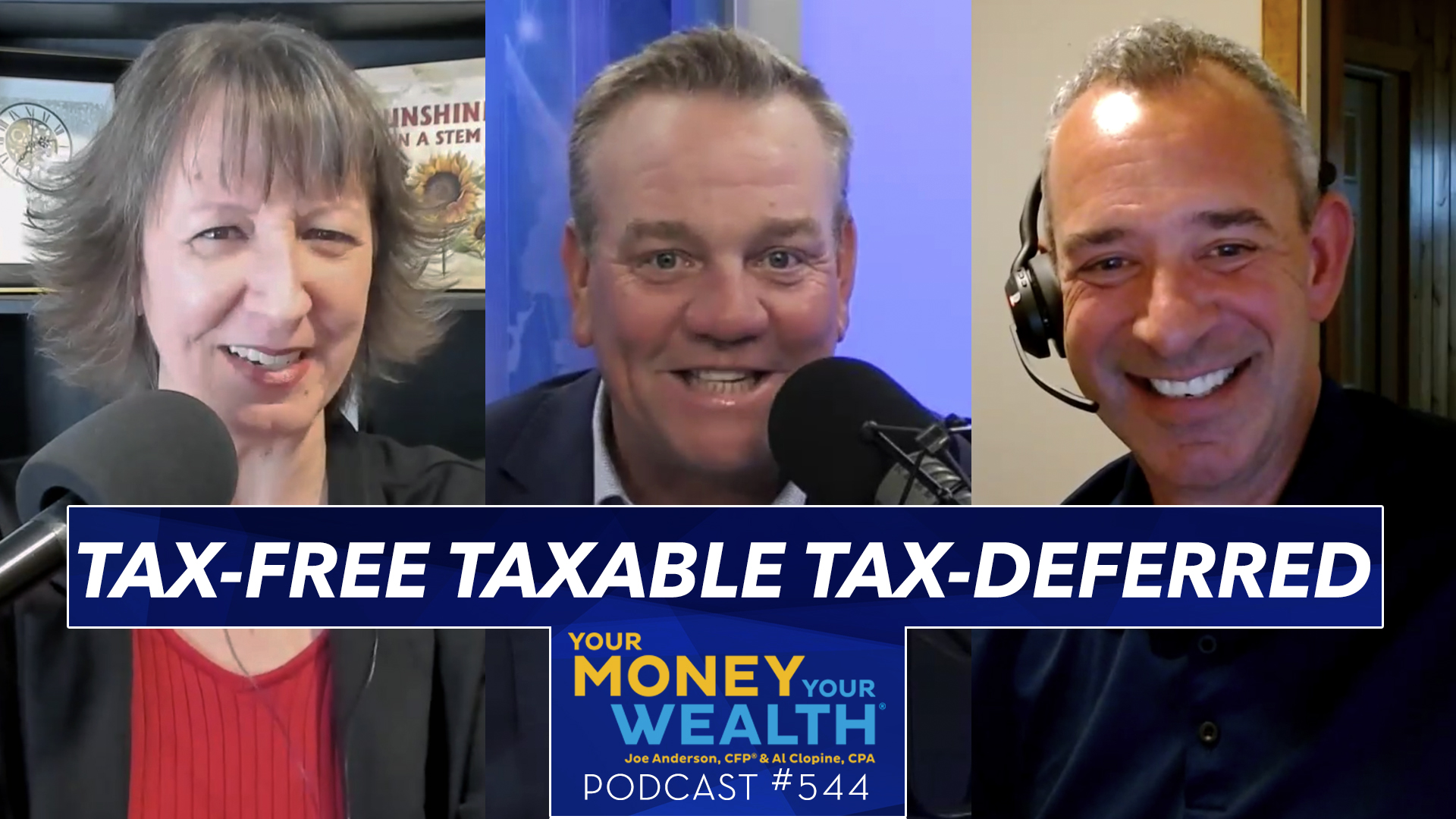
You’ve heard Joe and Big Al talk about the benefits of tax diversification in retirement. That is, having money in tax-deferred, tax-free, and taxable accounts. But what should you do if this tax triangle of yours is lopsided? Joe and our special guest co-host, Marc Horner, CFP®, spitball on this quandary for Rae and Roy in Central California. Plus, do Rae or Roy need to get a part-time job? Also, Elwood Blues in Illinois would like to retire in two years, but is willing to go for 3 more to make his retirement plan work. Joe and Marc spitball on when Elwood can really put down that harmonica.
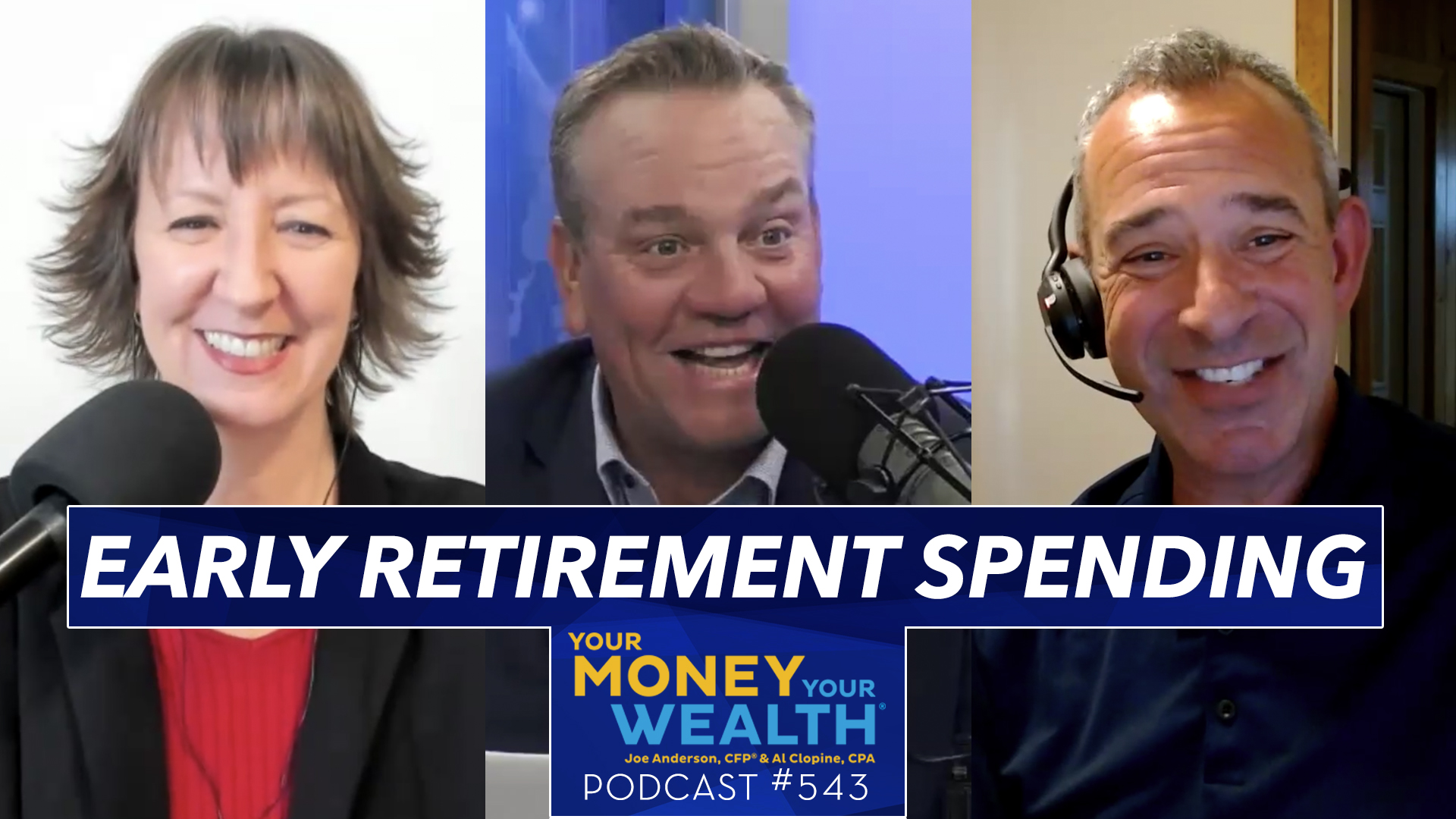
Is it possible, common even, to spend a lot early in retirement to celebrate your financial freedom? How do Roth conversions and withdrawals work if you do plan to call it quits around age 57, and spend big early on? Should you convert retirement funds to tax-free Roth after you stop working? Joe Anderson CFP® and our special guest co-host, Marc Horner, CFP® spitball on these topics for “Beavis and Daria” in Texas and “Clark Kent” in Pennsylvania, today on Your Money, Your Wealth® podcast number 543. Plus, the sooner 56-year-old “Tony Soprano” in New Jersey can retire, the better. What tips do Joe and Marc have for him? By the way, Marc is one of the newest principals here at Pure Financial Advisors. He’s the founder of Fairhaven Wealth Management, which has just become the newest Pure Financial Advisors Chicagoland office in Wheaton, Illinois – so help us welcome him for his YMYW debut.
